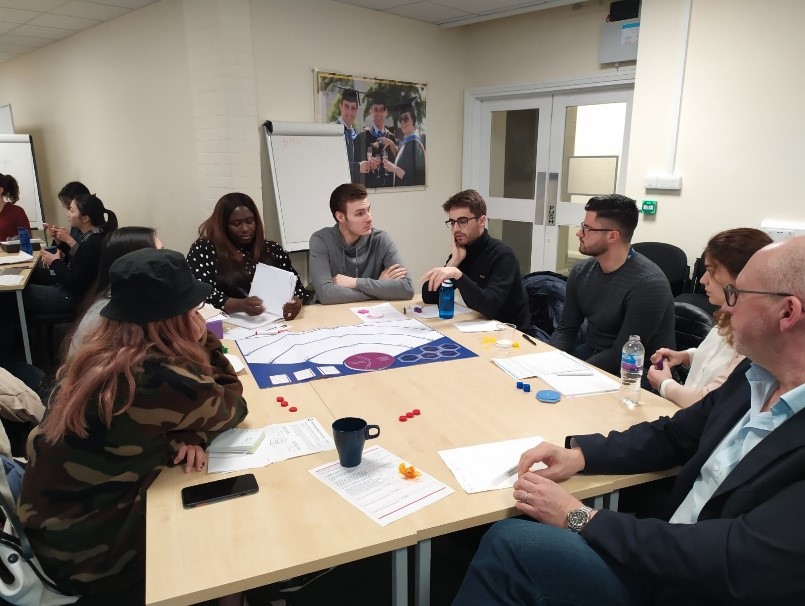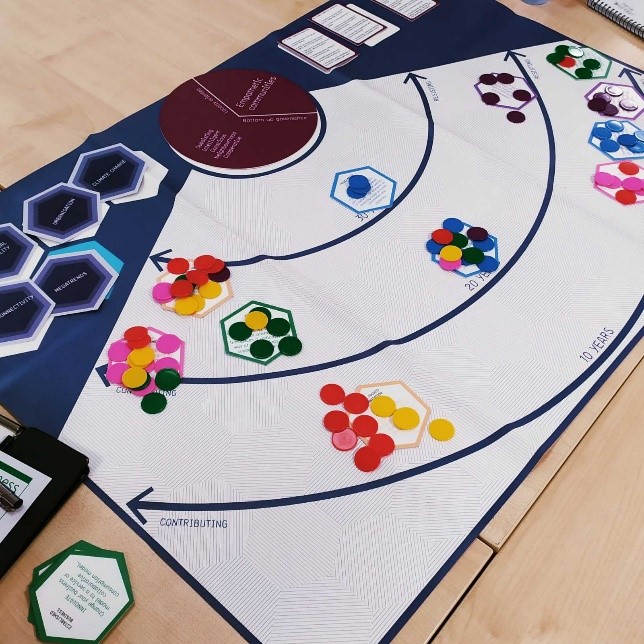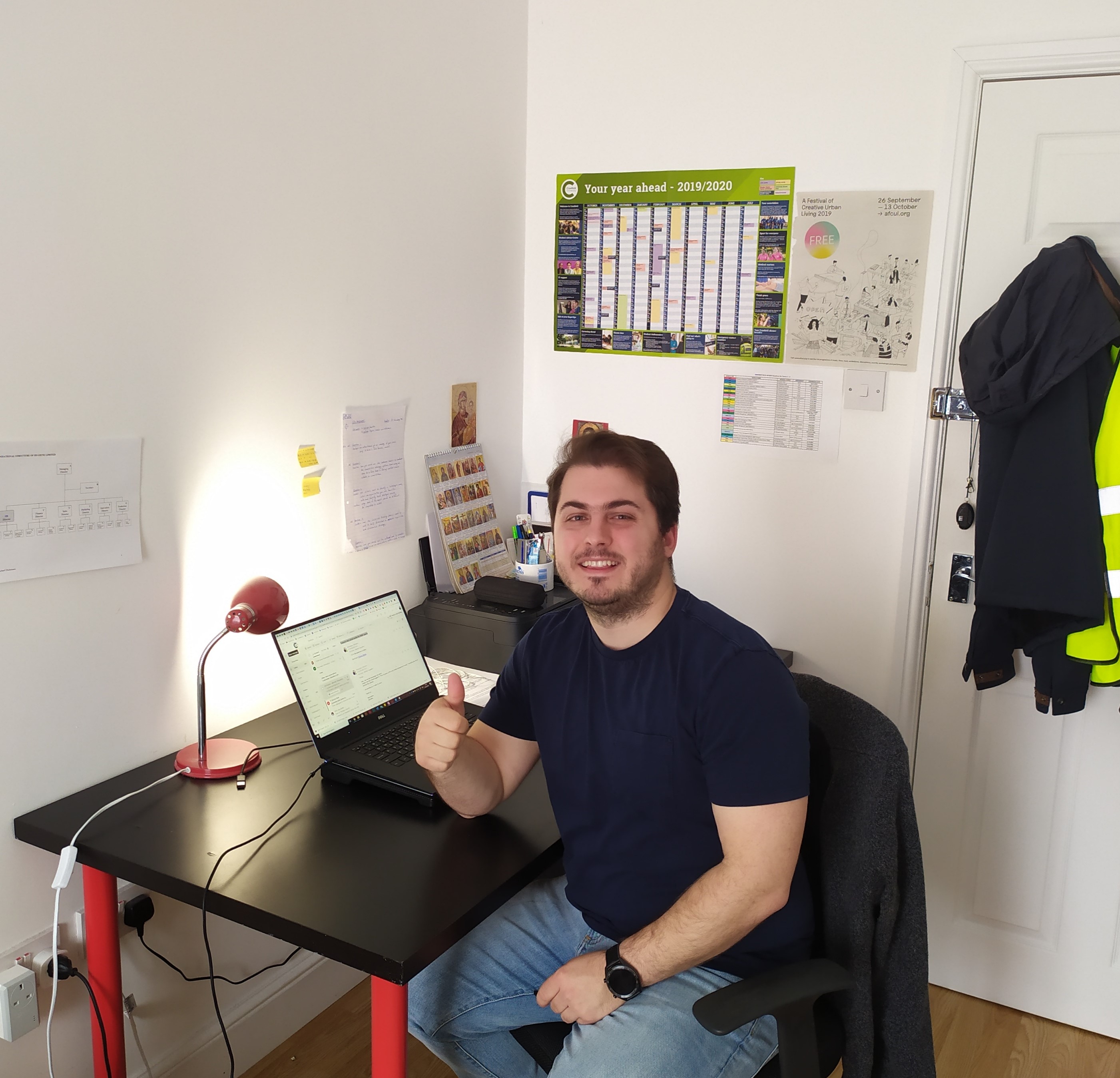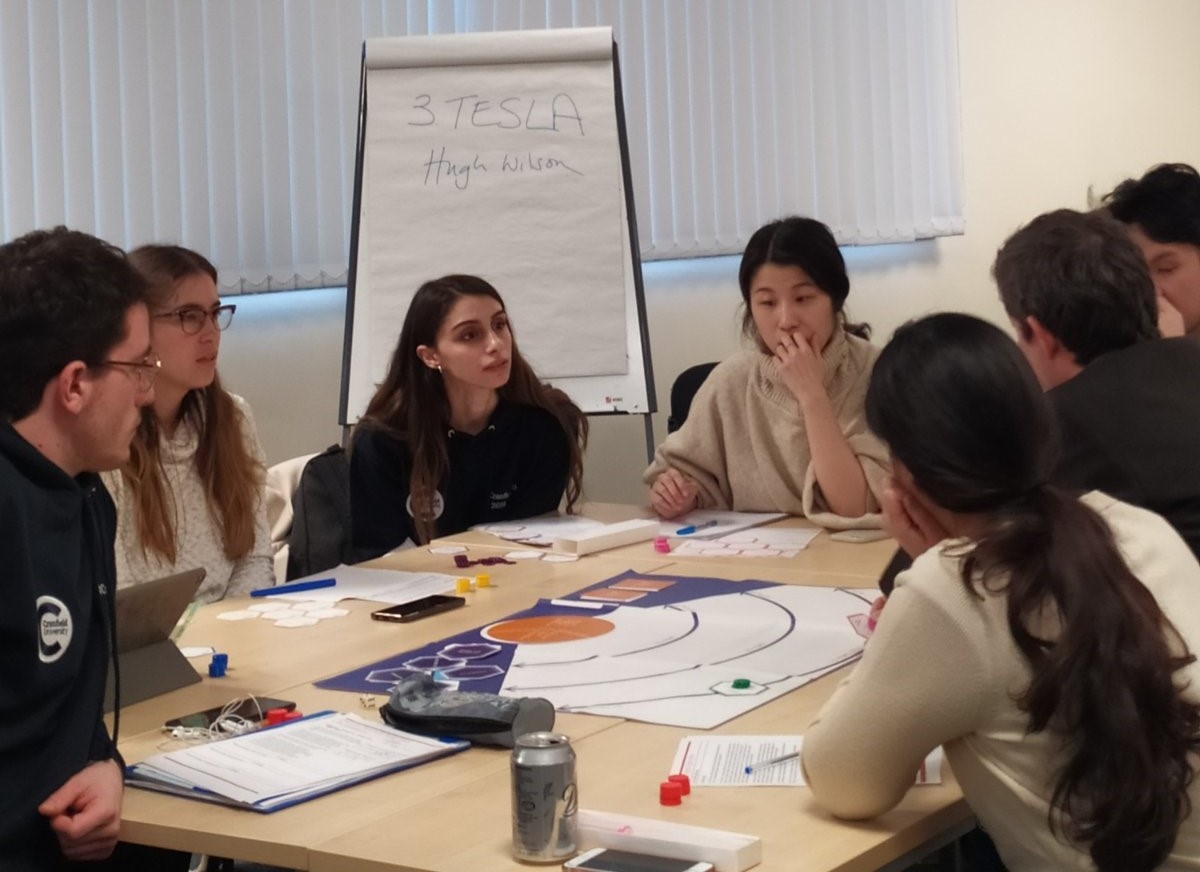From the Game of Life to a new reality
01/05/2020

Someone once said “Play is our brain’s favourite way of learning”. Here at Cranfield University, having already participated in more than five simulation and educational games, I feel that knowledge is not only presented in the books but through these opportunities. Sometimes in a better way. Cranfield is the best place to gain knowledge through interactive activities and the motto “transforming knowledge into action” is happening in most of the modules on the Master’s in Management.
One of the games that was really challenging and interesting was the ‘Game of Life’. We played this scenario exploration game as part of the Leading Corporate Sustainability module. The aim was for participants to experience and investigate how business, communities, and organisations react in different circumstances, what kind of links can grow among them, what kind of collaboration can be created and ultimately how they can achieve a more sustainable future together, based on two different scenarios.

To understand all these different concepts, we were divided into our learning team groups and we played the game with two different scenarios. The first scenario was about “Singular Super-Champions”, where the economy is continuously growing, it is highly competitive and the citizens are like economic units. While the second theme was about “empathetic communities”, where the economy is collapsing after a second global crisis.
We all took on different roles; a business, a civil innovator, a civil society organisation (imagine Greenpeace) and each member of the team had to investigate and discuss the difficulties that hinder these groups of people from sustaining, as well as opportunities which could help them grow.
The diverse environment at Cranfield enabled us to see how people from different cultures and backgrounds think and how they argue their positions. We learnt from each other, getting out of our silos and thinking more broadly and more open. This is really important on the Management MSc. Moreover, the feedback from the external academics and our professor was very constructive. We thought outside the box and tried different arguments and frameworks even though we weren’t that familiar with them.
I really enjoy this type of learning for many reasons. Firstly, during a simulation, you are involved in a scenario that could happen in the real world with different clients under different circumstances. Secondly, you have to do some kind of preparation and research before the “crucial” moment in order to be able to structure your arguments and support your ideas. As you would in the real work environment – you wouldn’t go to an important meeting unprepared. Thirdly, simulations are a good way to develop your personal soft skills, such as negotiation, how you can listen and filter others’ feedback. The fourth point is that by participating in a debate, you learn how to manoeuvre the discussion, how to build concrete arguments and how to present your ideas. As the game is developing and the data changes constantly, flexibility and adaptability are needed to perform well!
A change in my learning experience…
A lot has changed since then due to the COVID-19 pandemic, our daily lives have changed drastically. I still remember the day when I met some of my friends in the library, and at the end of that same day, they informed me that they were at the airport going back to their home countries. I was very surprised with the quick decision that had to be taken.
Our daily lives and educational experience at Cranfield have changed over last month. All of our lectures have moved online, giving us the opportunity to complete our studies as smoothly as possible. Initially, I thought that face-to-face learning was irreplaceable and quality could be lost with distance learning. However, day by day this perception is changing, by seeing the effort our professors are going to in order to maintain the high standards of our studies.

It is amazing how the online learning process mitigates spatial distances. Connected through a platform that Cranfield has provided us with, we can work and keep in touch with our classmates whenever we want whilst still feeling very close to each other. Of course, we need to be flexible and adaptable when taking time differences into account, and good time management is necessary for us all to work together.
After one month of lockdown and being isolated in my house, I miss my classmates! I was really looking forward to seeing them last week in the first module of the new semester! Everyone was so happy, sharing their experiences. I think the challenge of COVID-19 will remain as a positive memory in our minds and will be the talking point of our future discussions when we meet again. This challenge made us stronger, visionaries of a better and safer future, more conscious and mature to deal with future issues.
Categories & Tags:
Leave a comment on this post:
You might also like…
Keren Tuv: My Cranfield experience studying Renewable Energy
Hello, my name is Keren, I am from London, UK, and I am studying Renewable Energy MSc. My journey to discovering Cranfield University began when I first decided to return to academia to pursue ...
3D Metal Manufacturing in space: A look into the future
David Rico Sierra, Research Fellow in Additive Manufacturing, was recently involved in an exciting project to manufacture parts using 3D printers in space. Here he reflects on his time working with Airbus in Toulouse… ...
A Legacy of Courage: From India to Britain, Three Generations Find Their Home
My story begins with my grandfather, who plucked up the courage to travel aboard at the age of 22 and start a new life in the UK. I don’t think he would have thought that ...
Cranfield to JLR: mastering mechatronics for a dream career
My name is Jerin Tom, and in 2023 I graduated from Cranfield with an MSc in Automotive Mechatronics. Originally from India, I've always been fascinated by the world of automobiles. Why Cranfield and the ...
Bringing the vision of advanced air mobility closer to reality
Experts at Cranfield University led by Professor Antonios Tsourdos, Head of the Autonomous and Cyber-Physical Systems Centre, are part of the Air Mobility Ecosystem Consortium (AMEC), which aims to demonstrate the commercial and operational ...
Using grey literature in your research: A short guide
As you research and write your thesis, you might come across, or be looking for, ‘grey literature’. This is quite simply material that is either unpublished, or published but not in a commercial form. Types ...







